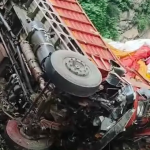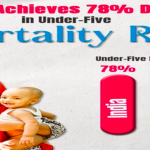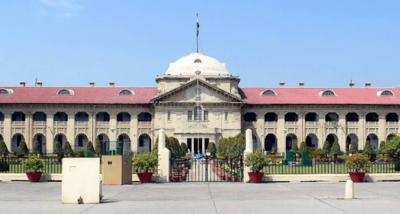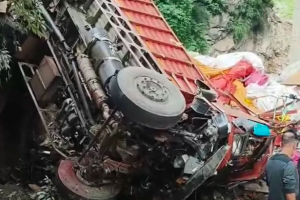Varanasi, Jan 8: A Varanasi court will decide on January 24 whether to make public the Archaeological Survey of India (ASI) report on the Gyanvapi mosque complex, which is at the centre of a dispute between Hindu and Muslim groups. The court of District Judge Ajay Krishna Vishwesh has accepted the plea of the ASI, which has sought four weeks’ time to keep the report confidential, citing the possibility of rumours and misconceptions among the public.
The ASI had conducted a videography survey of the Gyanvapi mosque complex from January 5 to January 7, as per the order of the Allahabad High Court, and submitted the sealed report to the court of Civil Judge Senior Fast Track Court of Varanasi on January 19. The survey was aimed at ascertaining the presence of any temple structure beneath or adjacent to the mosque, which is believed to have been built by Mughal emperor Aurangzeb in the 17th century after demolishing the original Kashi Vishwanath temple.
The survey was ordered by the court in response to a petition filed by five Hindu women, who claimed the right to worship at the Maa Shringar Gauri temple, located outside the western wall of the mosque. The petitioners, represented by advocate Vijay Shankar Rastogi, alleged that the mosque was constructed on the ruins of the temple and that the temple structure still exists in the basement of the mosque. They also submitted a map of the Gyanvapi complex, showing the location of various Hindu shrines and idols.
The Muslim side, represented by the Anjuman Intezamia Masjid Committee, opposed the survey and challenged the jurisdiction of the court, citing the Places of Worship (Special Provisions) Act, 1991, which prohibits any conversion of a place of worship or any change in its status as it existed on August 15, 1947. The Muslim side also raised doubts over the impartiality of the court-appointed commissioner, Ajay Kumar Mishra, who conducted the survey along with two ASI experts.
The Gyanvapi mosque case has been pending in the court since 1991, when three persons, including Pandit Somnath Vyas, a descendant of the priests of the Kashi Vishwanath temple, filed a suit seeking the restoration of the temple land and the removal of the mosque. The case was revived in 2019, after the Supreme Court delivered its verdict in the Ayodhya case, paving the way for the construction of a Ram temple at the disputed site.
The Gyanvapi mosque stands next to the Kashi Vishwanath temple, which is one of the most revered Hindu pilgrimage sites. The temple was rebuilt in 1776 by Ahilyabai Holkar, the queen of Indore, after the original temple was destroyed by Aurangzeb. The temple complex was further renovated and expanded in 2019 by Prime Minister Narendra Modi, who laid the foundation stone for the Kashi Vishwanath Corridor, a project to connect the temple with the Ganga river.
The Gyanvapi mosque case has attracted national attention and political interest, as it comes just months before the Lok Sabha elections and weeks before the inauguration of the Ram temple in Ayodhya on January 22. The administration has deployed heavy security forces and imposed prohibitory orders in the sensitive areas to prevent any untoward incident.











Add Comment